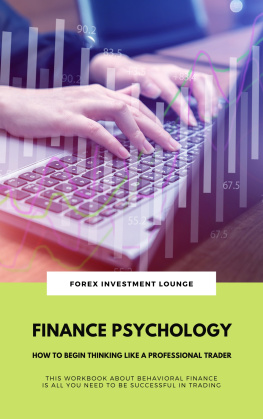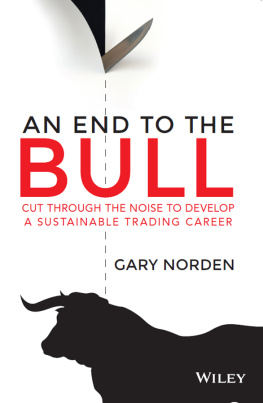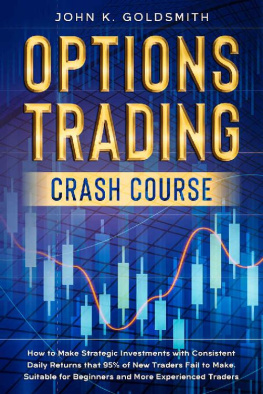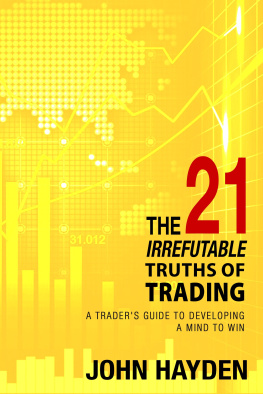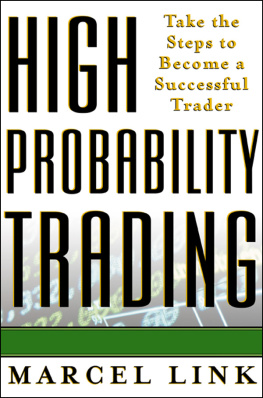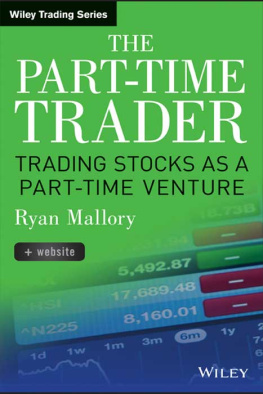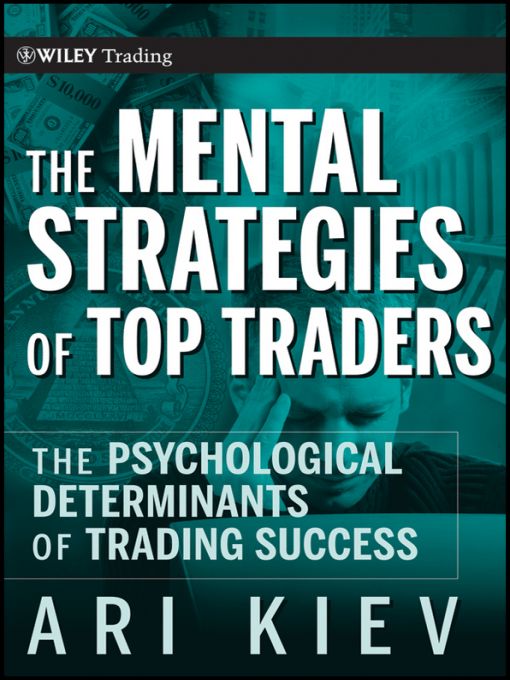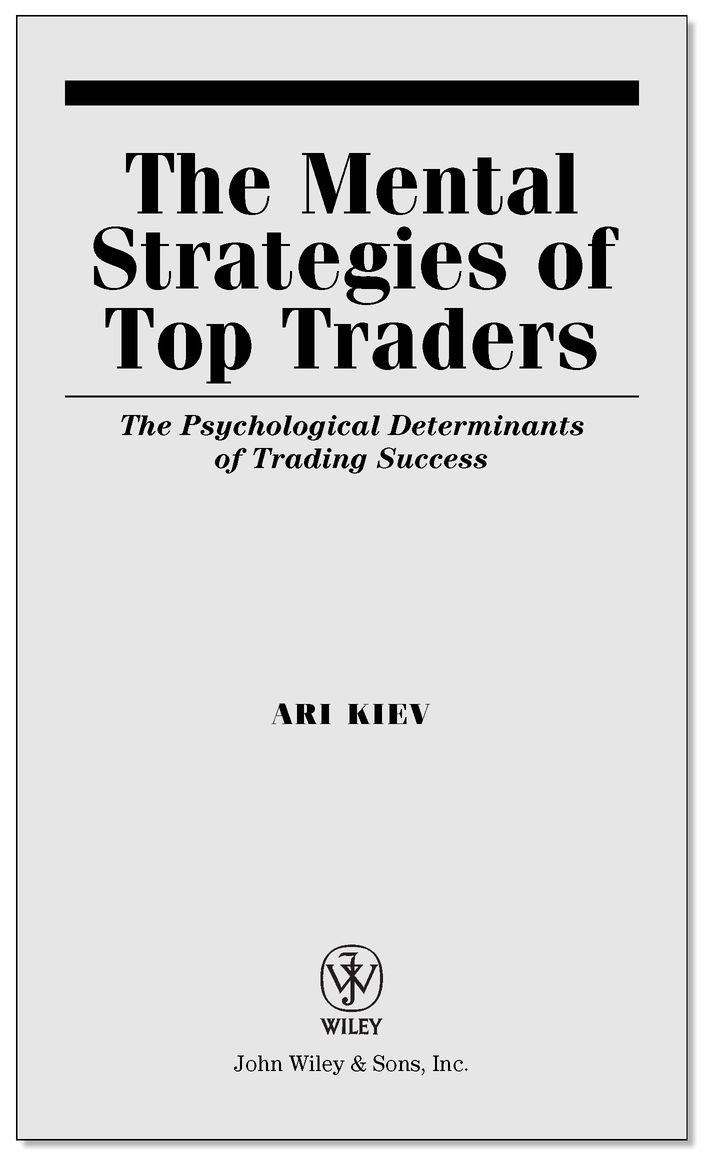Table of Contents
Founded in 1807, John Wiley & Sons is the oldest independent publishing company in the United States. With offices in North America, Europe, Australia and Asia, Wiley is globally committed to developing and marketing print and electronic products and services for our customers professional and personal knowledge and understanding.
The Wiley Trading series features books by traders who have survived the markets ever changing temperament and have prosperedsome by reinventing systems, others by getting back to basics. Whether a novice trader, professional or somewhere in-between, these books will provide the advice and strategies needed to prosper today and well into the future.
For a list of available titles, visit our website at www.WileyFinance.com.
For Phyllis, with all my love
Acknowledgments
Many people have helped me with this book. I am especially grateful to the hedge fund managers who have provided me with the opportunity to explore the interface between trading and psychology. I want to thank Tricia Brown for helping me organize many hours of interviews with traders and for her efforts in helping me to edit several versions of the original manuscript. As in the past, much of this would not have been done without the support of my beloved wife, who has always been there to encourage me to stay focused on the project through the many stages of its progress.
Introduction
From my perspective, investing is not simply a fair coin-toss where everyone has the same chance of winning or losing. There is no question that some people consistently outperform other players. So, the question becomes, How can you increase your chances of winning? That question is the driving force behind this book. While I cannot define a step-by-step formula for trading success, I have outlined various attributes of successful traders in the hope that by learning more about them you can improve your own odds and the odds of those around you.
Certain psychological characteristics of successful people obviously can be found in successful traders and portfolio managers. However, there is something unique about investing that requires some additional, seemingly incongruent, characteristics. For example, the most successful investors will have a high tolerance for risk-taking in a controlled way. They will also have a capacity for making rapid decisions with insufficient information but with sufficient thoroughness and discernment to increase the probability of success. They will have a strong desire for wins but have a tolerance for losses. They will know how to recover from failure and to persevere because at least 40 to 50 percent of their trades are going to be wrong.
Of course, I have explored many of these themes in my earlier books. In Trading to Win, I discussed the commitment to win as opposed to trading to avoid losing. Trading in the Zone tackled the issue of how an individual can get outside his own skin and function in an objective way, zone-focused and intensely concentrated on the present moment in the context of a longer-term objective. The Psychology of Risk addressed overcoming fears and inhibitions about the possibility of losing, and Hedge FundMasters specifically tackled the issue of anxiety. Leadership offered readers information on how to empower others in line with these same issues. Each of these books has dealt with another dimension of the personality of the successful trader. So, what makes this book different?
The Mental Strategies of Top Traders attempts to take another cut at the issue of successful trading by looking across a range of skill sets that are component parts of the successful trader, including among other things a goal-oriented strategy, risk management, creative thinking, and a capacity for collaboration and leadership. What is the nature of investing and trading in terms of being a probabilistic field of endeavor, and what kinds of traits and personality characteristics must be developed to increase the likelihood of success?
First, the stock market is a probabilistic field providing various outcomes. The successful investor must be psychologically geared toward correctly handicapping the odds so as to increase his chances of winning in a continuously changing paradigm. Approaching the markets this way flies in the face of most academic approaches to the markets, which are predicated on the notion that the markets are efficient and that consistent winning by an investor is probably more likely due to luck than to skill.
My view is that the field of investing is like sports betting and that you as a trader can increase your odds of winning by learning to bet on high-probability bets. Indeed, with some training and practice, you can develop your ability to handicap the probabilities in order to be able to do so. Where there are a variety of probable approaches, there are a few that have very favorable odds, and the traders edge is to find those few and rare high-probability bets, do the work to build conviction, and then press the bet, holding the bet even after portions of your datapoints have been realized and the price of a stock has moved up. In effect, it is possible to build on already-existing personality strengths so as to develop the ability to function in a goal-oriented way, and learn to cut losses and maximize winning bets. It is also possible, as we shall see later in this book, to begin to look at company-specific and sector-specific data in your analysis of companies so as to get comfortable in making nonconsensus, high-risk, and high-probability betsthe ones where there is the greatest gap between current and future expectations of price.
Unlike the situation at the racetrack or in other types of sports betting where the odds are posted, they are not posted in the marketplace. As an investor, you have to learn to read the odds by figuring out the expectations that are built into present pricesspecifically what expectations are built into current data about a company that have not yet been fully expressed in the price of the stock, or finding mispricings where the full value of the stock has not been fully expressed in the present price but will be over time as certain events unfold. This is not where the vast majority of traders spend their time or where the sell-side research focuses its published reports, but it is where you will have to invest a lot of your research efforts if you are to uncover expected value.
More often than not, investors look at the fundamentals of a company as the source of the price, failing to differentiate fundamentals from the expectations implied by the price of the stock. Investors will often buy a stock based on strong fundamentals even if expectations are not positive. They may also avoid buying a stock with weak fundamentals even when expectations for increased prices are present. As a result, most investors fail to adequately calculate the odds of positive or negative stock price movement, which is where the profitability lies.
According to Steven Crist, The issue is not which horse in the race is the most likely winner, but which horse or horses are offering odds that exceed their actual chances of victory. ...Under this mindset everything but the odds fades from view (Steven Crist, Crist on Value, in Beyer et al.,


